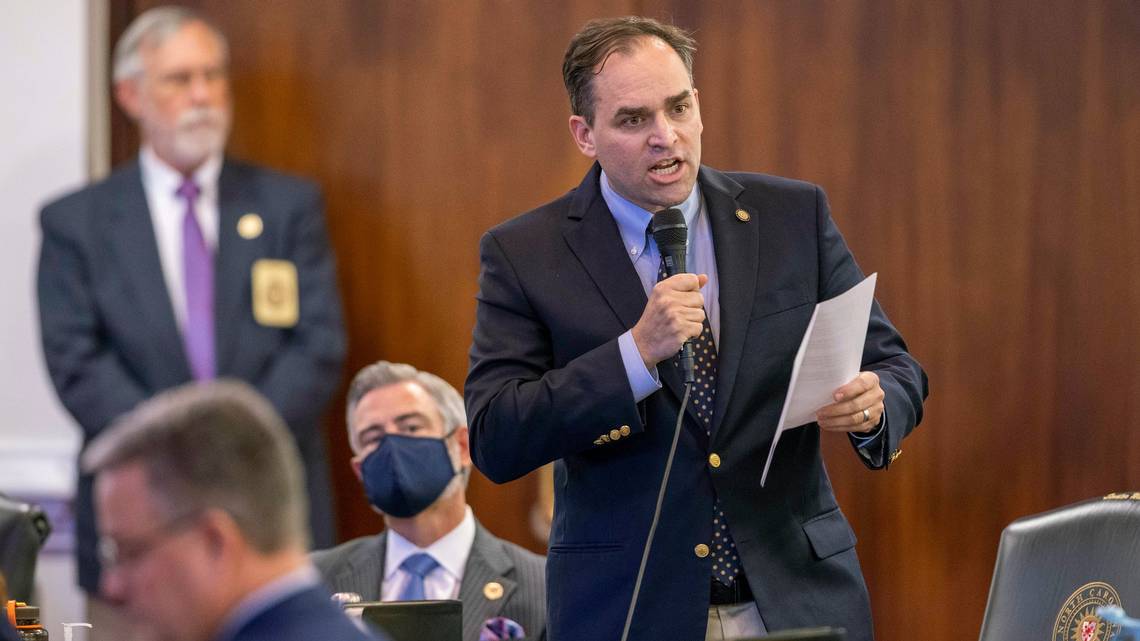North Carolinians are feeling the pinch of rising inflation, with skyrocketing rent prices putting a strain on their budgets. The latest Consumer Price Index (CPI) numbers released yesterday highlight rent and car/truck prices as the primary driving factors behind national inflation.
According to the CPI data, rent prices in North Carolina have been on a relentless upward trajectory. Nearly half of renters in North Carolina are now spending more than 30% of their income on rent, and roughly two out of every five renters are paying more than 35% of their income.
These individuals are considered to be cost-burdened, meaning they spend 30% or more of their income on housing. This puts immense pressure on their ability to afford other necessities such as food, transportation, and medical care.
Keenan Schlecht, a 27-year-old resident of North Hills, saw his monthly rent increase from $950 to $1,560 over the past four years, amounting to a 64% jump. Schlecht, like many others, finds himself spending more than half of his monthly earnings on rent alone.
Some have said inflation could be costing North Carolina families $7,800 in pre-tax income per year.
The annualized inflation rate rose as high as 9.1% last summer,
In addition to rental prices, car and truck prices have also been on the rise.
Democratic U.S. Rep. Wiley Nickel, NC-13, supported new truck standards which are expected to contribute to increased vehicle costs. The costs for compliance are estimated to increase to over $2,500 for F-250s to over $8,300 for semi-trucks, which may impact small businesses significantly.

Some attribute the rising costs to Democratic policies and the overall increase in inflation since President Biden took office.
“Joe Biden and Wiley Nickel have targeted trucks and American energy while hammering family budgets with rising costs,” NRCC spokeswoman Delanie Bomar said. “Inflation is hitting North Carolina hard and there’s no light at the end of the tunnel with Democrats at the wheel.”
On Wednesday, Nickel had the chance to speak with Jerome Powell, the Chairman of the Federal Reserve.
Bomar again criticized Nickel for asking Powell about music rather than interest rates, despite his district being hit so hard by inflation.
Nickel followed up by asking Powell about where the economy is heading and capital requirements for banks.
Inflation has increased since Biden became president. Core inflation rose 0.4% on the month and is up 5.3% from a year ago.
A recent East Carolina University (ECU) poll showed that inflation and the cost of living are top concerns for 44% of North Carolinians. Participants in the survey expressed their frustrations, highlighting the challenges they face due to rising prices.
One respondent to the ECU poll shared a similar personal testimony to Schlecht.
“[My] 2019 rent was 900 dollars,” the respondent said. “[In] 2023, it’s $1900 for the same apartment. [It’s] hard to afford rent.”
Another respondent spoke more broadly.
“People can’t afford their medication, food, gas, rent, and bills,” the respondent said. “Not to mention our 401k’s falling thousands of dollars. Inflation is killing us.”
The Federal Reserve’s efforts to curb inflation have shown minor progress, with the latest CPI report indicating a slight easing. However, core inflation, which excludes more volatile categories like food and energy, remains persistent. This raises concerns that some underlying sources of inflation could become permanent fixtures in the economy.
In early May, the Federal Reserve increased interest rates for the 10th time since March of 2022.